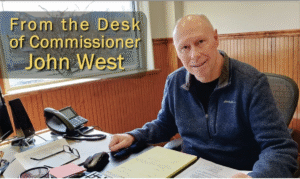Oregon is failing in some of the most critical areas affecting the daily lives of its citizens. From a deteriorating public school system to some of the highest rates of drug addiction, homelessness, and crime in the nation, Oregonians are being hit hard on every front. On top of that, they face some of the highest taxes in the United States, with more likely on the way (1).
Despite billions of dollars spent on state policies intended to help, many of these policies are not only failing but actively harming our communities. Our tax dollars are being wasted, and instead of improving our lives, they are contributing to our decline.
Oregon’s state policies are failing its people across nearly every important issue. So, who is responsible for these poor decisions and ineffective policies? The answer is clear: Oregon is a one-party state, controlled for decades by the Democratic Party, which holds the governorship, the state House, and the state Senate. When one party maintains total control for this long, there is no one else to blame for the consequences we now face.
Our local county government, particularly in Josephine County, has very little control over these state-level decisions. Yet, it’s the effects of those state policies that Oregonians feel daily, from housing shortages caused by land use laws (like SB 100, passed in 1973) to burdensome taxes and ineffective homelessness regulations (such as HB 3115).
Despite this, much of the local political discourse has become consumed with petty arguments and distractions. The amount of time and energy spent attacking our local leaders over relatively minor issues is astounding. Some examples include:
* Criticism over commissioners turning off comments on social media posts.
* Outrage over a $2,500 expenditure on commemorative coins meant to honor individuals who have made a meaningful impact in our community, a small, symbolic gesture compared to the millions wasted at the state level.
* Complaints about a library lease termination that has yet to result in an eviction notice, and likely never will. (And if it does, I’ll be the first to support a recall.)
Regarding the library issue, it’s worth noting that Library Director Kate Lasky stated to the Charter Commission in 2023 that the library did not require county support (2).
Furthermore, it’s puzzling that the same groups and individuals, such as Citizens for Responsible Government (CRG), who backed the failed charter proposal 17-116 (rejected by 67% of voters), are now so outraged by the county’s approach to library negotiations. Notably, that the charter proposal didn’t include any support for the library either. This inconsistency suggests that their outrage is more about pushing a political agenda than genuine concern for the library.
These kinds of distractions are childish and unproductive. Meanwhile, critical issues that deeply affect our lives go largely unaddressed by those who spend their energy on these smaller controversies. The priorities of some in our community seem clearly misplaced, and their agenda is not aligned with the betterment of Josephine County or the people who live here.
Of course, local government should be held accountable and operate transparently. Which brings to mind, what about the money being spent on these frivolous ethic complaints that cost the county money but hasn’t even been able to prove one of them. A better use of our concern would be calling for independent investigations into serious allegations, such as those made by Simon Hare or scrutinizing the nonprofits receiving millions in taxpayer dollars with little to no accountability.
Where are our priorities? Wouldn’t our time be better spent working to repeal damaging state laws like HB 3115, or pursuing a recall of the governor rather than county commissioners? Wouldn’t it make more sense to focus on electing more Republicans at the state level to restore balance to Oregon’s government?
Let’s redirect our attention to the serious issues that truly affect our lives every day, issues that are largely the result of state government policies and the one party that has held power in Oregon for far too long.
The bottom line is this: those who spend their time attacking local government over petty matters are distracting you from the real source of Oregon’s problems—our state leadership and the political monopoly held by the democrats.
Conclusion:
Below you will likely notice a common theme among Oregon’s top issues? The state often ranks among the highest in spending on these very issues, yet it struggles the most with crime, homelessness, drug abuse, and more. These are real challenges facing our communities, driven not by local governments, but by flawed state policies.
If the commissioner re-enables public comments on his social media posts, will it improve our failing school system? Will it solve the homelessness crisis? Will spending $2,500 on commemorative coins for local heroes make a dent in the ever-increasing tax burden imposed by the state?
In the grand scheme of things, how do these distractions help solve the real problems we face? That is the question. Ask yourself: Who is focusing on these petty issues, and why- while ignoring the real challenges affecting us all? Distractions by others to take the ball off the main issues that are destroying our state and our lives.
Let’s take a closer look at the very issues that affect our lives daily but seem to have so little priority by some of our community members.
Let’s talk about better governance:
As of 2024, Oregon’s education system ranks among the lower tiers nationally, according to several evaluations:
- WalletHub ranks Oregon’s public school system as the 7th worst in the nation, citing an “F” grade in test scores and dropout rates, despite an “A” in spending. Oregon has 7th worst school system in America, study says
- Oregon public schools ranked among worst in America, study shows Listed at 45, almost at the bottom of the list.
These rankings suggest that while Oregon invests significantly in education, the outcomes in terms of student performance and graduation rates are not commensurate with the spending. A clear case of no accountability – yet we worry over $2,500 coins for bolstering people’s lives that have helped our community.
As of 2024, Oregon ranks among the top states in the U.S. for homelessness, both in total numbers and per capita rates.
Oregon’s Homelessness Rankings
- Total Homeless Population: Approximately 22,875 individuals were experiencing homelessness in Oregon as of January 2024, marking a 13.6% increase from the previous year. This places Oregon 8th or 4th nationally in total homeless population, despite being 27th in overall state population .Oregon’s Homeless Population Is 8th Largest in the Nation, HUD Count Shows or 4th nationally looking at; Which states have the highest and lowest rates of homelessness? | USAFacts
- Homelessness Rate: Oregon has a homelessness rate of 54.0 per 10,000 residents, ranking it 4th highest among U.S. states, following the District of Columbia, Hawaii, and New York .Homeless Population by State 2025
- Unsheltered Homelessness: A significant portion of Oregon’s homeless population is unsheltered. In 2022, 61.7% of homeless individuals in the state were unsheltered, compared to 38.3% who were in shelters .
- Families with Children: Oregon has the highest rate of unsheltered homelessness among families with children in the nation, with 19.9 unsheltered homeless children per 10,000 kids. This rate is nearly triple that of the second-highest state, Hawaii .Oregon is first in the nation for rate of unsheltered homeless families – Axios Portland
As of 2024, Oregon ranks among the top states in the U.S. for drug addiction and related issues.
Oregon’s Drug Addiction Rankings
- Overall Drug Problem: According to WalletHub’s 2024 report, Oregon ranks 12th among U.S. states for the severity of drug problems, based on metrics like arrest and overdose rates, opioid prescriptions, and employee drug testing laws. Drug Use by State in 2025
- Overdose Deaths: Oregon experienced a nearly 33% increase in drug overdose deaths in 2023, totaling 1,833 fatalities. This surge was primarily driven by opioids like fentanyl and stimulants such as methamphetamine. Deaths from drug overdoses surged nearly 33% in Oregon last year – OPB
Policy Changes and Challenges
In response to rising drug addiction rates, Oregon has undergone significant policy shifts, after seeing the damage that was done when hard drugs were decriminalized:
- Recriminalization: In April 2024, Oregon Governor Tina Kotek signed House Bill 4002, reintroducing criminal penalties for possession of substances like fentanyl, methamphetamine, and heroin. The law, effective September 1, 2024, classifies possession of small amounts as a Class C misdemeanor, punishable by up to 30 days in jail. It also includes “deflection” programs, allowing law enforcement to direct individuals toward treatment instead of jail. Drug policy of Oregon – Wikipedia
- Funding Allocation Issues: A $20 million deflection grant intended for connecting people to substance-use treatment was controversially allocated in several counties. Significant portions were used on law enforcement expenses, such as hiring prosecutors and purchasing police equipment, rather than investing in recovery services. Revealed: Oregon spent funds meant for addiction services on prosecutors and police gadgets | Oregon | The Guardian
These developments highlight the ongoing challenges Oregon faces in addressing drug addiction, balancing enforcement with treatment, and ensuring effective use of resources.
As of 2024, Oregon ranks among the top ten most dangerous states in the U.S., based on various crime metrics Oregon ranks among most dangerous states according to new report
Oregon’s Crime Rankings
- Overall Crime Rate: Oregon reports a total crime rate of 5,610 incidents per 100,000 residents, placing it 9th highest nationally. Crime Rate By State 2025
- Violent Crime: With a violent crime rate of 2,920 per 100,000 people, Oregon ranks 8th highest in the country.
- Public Safety Ranking: According to the Common Sense Institute, Oregon ranks 46th out of 51 (including the District of Columbia) in public safety. Despite being 4th highest in public safety spending per capita, the state ranks 49th in police per capita, indicating potential resource allocation challenges. Oregon Public Safety Competitiveness Index
Urban Crime Hot spots
Several Oregon cities exhibit higher crime rates:
- Grants Pass: Reports 40.4 crimes per 1,000 residents, with a violent crime rate of 4.4 and property crime at 36.0. 10 Most Dangerous Cities in Oregon 2025 [Update]
Contributing Factors
Several factors contribute to Oregon’s high crime rates:
- Law Enforcement Resources: Despite high public safety spending, Oregon ranks low in police per capita, potentially affecting crime prevention and response. Oregon Public Safety Competitiveness Index
- Urban Challenges: Cities like Portland face issues such as homelessness and drug addiction, which can correlate with higher crime rates.
- Policy Impacts: Changes in drug laws and enforcement practices may influence crime statistics, though the exact effects are complex and multifaceted.
Conclusion:
Oregonians face very serious issues, none of which our local county government has much control over. The common theme of tax and spend with one party control has resulted in our state and county being destroyed in every aspect of our lives. It is time we took back our state and put common sense solutions with balance of power back into the state government.
(1) Top 14 taxes of Legislature (may pass in next 30 days)
https://oregoncatalyst.com/87833-top-14-taxes-legislature-pass-30-days.html
(2) Seems Kate Laskey had a different tune about library support back in March of 2023 when the charter commission was having a discussion on a new charter (1):
From March 1, 2023 minutes:
“Jean Ann Miles Has spoke with Kate Laskey regarding the library and Kate is not concerned about support for the public library, but is concerned about support for the Law Library. She
recommended taking out the word “public” and adding “law”.”
From March 15th, 2023 minutes:
Wally Hicks Reads ORS 9.815 regarding the Law Library being a statutory requirement for the County. The State provides funding. He doesn’t see a need for it to be in the Charter.
Charter Commission; https://sites.google.com/view/jococharterreview/home
https://youtu.be/XmFC_mWJfeg?feature=shared&t=740






Great article! You’ve done a great job exposing the real problems Great job!
Thank you so much. I really appreciate the kind words and glad you found it helpful. Have a great evening.